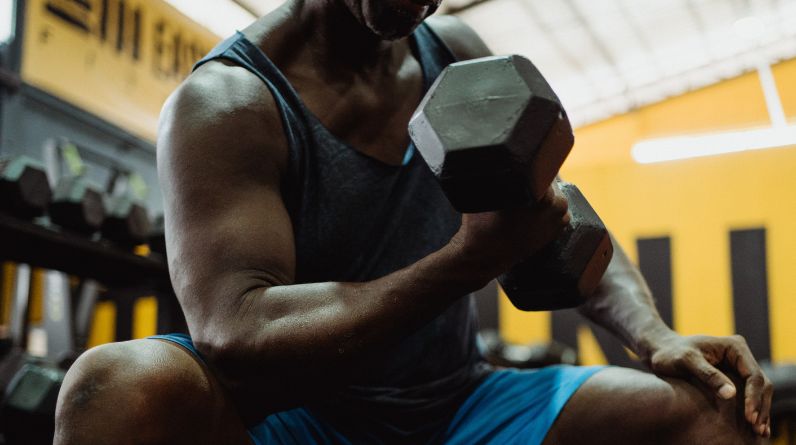
PLANT-POWERED GAINS FOR A BEEFY BODY
So, you’ve decided to embrace the plant-based life, but you still want to rock a ripped physique that makes even Popeye’s spinach habit look like child’s play. Can a bodybuilder also be a vegan? Absolutely, my friend! It’s time to break the myth that muscles only grow with animal protein. Welcome to the world of vegan bodybuilding, where beans, greens, and gains collide.
The Power of Plants
First things first, let’s address the elephant in the room (or should I say, the kale in the garden?). Can a vegan diet truly help you gain muscle? The short answer is a resounding “yes.” The long answer? That’s the main topic of this post, though.
The Protein Predicament
Protein, often revered as the magic ticket to muscle growth, frequently conjures up images of juicy steaks, chicken breasts, and eggs. However, here’s the exciting revelation: plants are packed with protein too, and they’re about to become your new best friends on your vegan bodybuilding journey. These plant-based protein sources, such as lentils, chickpeas, tofu, and seitan, will soon find a special place in your diet. They’re not just alternatives; they’re potent sources of muscle-nourishing goodness.
Designing Your Vegan Workout Routine
Now, let’s jump into the exhilarating part of crafting a vegan bodybuilding workout routine that would earn a nod of approval from Arnold Schwarzenegger himself. This is where you get to design your path to building muscle, torching fat, and boosting your overall fitness, all while staying true to your vegan lifestyle.
Vegan Bodybuilding Workout Plan
1. Compound Movements
Compound movements are the backbone of your workout regimen, and they’re the secret sauce behind building muscle efficiently. These exercises are like multitasking for your muscles, as they engage multiple muscle groups simultaneously, giving you more bang for your buck. Think of classic compound exercises like squats, deadlifts, bench presses, and pull-ups as your trusted allies. Your mantra throughout your vegan bodybuilding journey: “Compound all the way.”
2. Split Routine
To keep things fresh, engaging, and to allow muscle groups ample time to recover, consider incorporating a split routine into your plan. For example, you might dedicate one day to targeting chest and triceps, the next to working on your back and biceps, and so forth. It’s crucial to remember that recovery is just as essential as the workout itself. Muscles don’t grow during the workout; they grow when you give them the rest they deserve.
3. High-Intensity Interval Training (HIIT)
To elevate your fat-burning potential while preserving precious muscle mass, welcome High-Intensity Interval Training (HIIT) into your workout arsenal. HIIT workouts are like fiery infernos for calories. Picture yourself sprinting, leaping, and conquering burpees. These short bursts of intense effort not only incinerate calories but also supercharge your metabolism, helping you stay lean and mean throughout your vegan bodybuilding journey.
4. Functional Training
Functional exercises add a layer of dynamic athleticism to your routine. Activities like kettlebell swings, battling ropes, and box jumps not only improve your overall physical prowess but also infuse an element of fun into your workouts. Remember, fun is the secret sauce that keeps you coming back for more. While you’re busy sculpting your body, these exercises also enhance your ability to perform everyday tasks with ease.
5. Listen to Your Body
Above all, remember that every body is unique. Pay close attention to how yours responds to different exercises and adjust your routine accordingly. If your knees start to stage a protest during squats, it’s a sign to mix things up. Swap squats for lunges or leg presses, ensuring that your workout remains effective and safe for your body’s needs. Adaptability and intuition are your allies on this journey to vegan bodybuilding success.
Conclusion
Vegan bodybuilding isn’t a paradox; it’s a powerful reality. With the right knowledge, dedication, and a plant-based diet that would make a broccoli jealous, you can achieve impressive gains and redefine what it means to be a true plant-powered beast. Whether you’re fueled by tofu or tempeh, legumes or lentils, remember that the secret sauce to vegan bodybuilding success is the same as any other form of bodybuilding: consistency and determination. So go forth, flex those vegan muscles, and show the world what plant-powered strength looks like!
Frequently Asked Questions
1. Can you gain muscle on a vegan diet?
Absolutely! With a well-balanced vegan diet and proper training, you can achieve significant muscle gains. Building muscle primarily relies on consuming enough protein, and as long as you’re meeting your protein needs from plant-based sources, your body doesn’t discriminate between plant protein and animal protein when it comes to muscle growth. Just like a carnivorous bodybuilder, a vegan bodybuilder can develop impressive muscles.
2. What are the best vegan protein sources for bodybuilding?
Vegan bodybuilders have a treasure trove of plant-based protein sources to choose from. Legumes, including beans, lentils, and chickpeas, are protein powerhouses. Tofu and tempeh, both made from soybeans, are incredibly versatile and protein-rich. Seitan, also known as wheat meat, is a dense source of plant protein. Edamame, which are young soybeans, provide a tasty protein boost. Quinoa is a unique plant source as it’s a complete protein, meaning it contains all essential amino acids. Additionally, vegan protein supplements made from pea, hemp, rice, or a blend of these can be convenient options, especially for post-workout recovery.
3. How do I calculate my daily protein intake as a vegan bodybuilder?
Calculating your daily protein intake as a vegan bodybuilder is essential to ensure you’re getting enough to support muscle growth and recovery. Aim for 1.2 to 2.2 grams of protein per kilogram of body weight, depending on your activity level and specific goals. This range allows flexibility based on your individual needs. For example, if you’re engaging in intense training or aiming for significant muscle gain, you might opt for the higher end of this range. Keep in mind that the quality of protein and overall diet balance are equally important as quantity.
4. Do I need to take supplements on a vegan bodybuilding diet?
While it’s possible to get all your nutrients from a well-planned vegan diet, some vegans choose to take supplements to ensure they cover all their nutritional bases. Vitamin B12 is one of the most critical supplements for vegans, as it’s primarily found in animal-based foods. Creatine, typically found in meat and fish, is another supplement that some vegan bodybuilders use to enhance their performance, especially for high-intensity, short-duration activities. Vegan protein powder supplements can also be handy for meeting daily protein goals, particularly on busy days or when you need a convenient post-workout option. Always consult a healthcare professional or registered dietitian before adding supplements to your diet.
5. Is it possible to get enough calories for bulking on a vegan diet?
Yes, it’s entirely possible to get enough calories for bulking on a vegan diet. Many plant-based foods are calorie-dense and packed with nutrients. Nuts, seeds, avocados, and whole grains like quinoa and oats are excellent sources of calories for bulking. You can also use healthy fats like coconut oil or olive oil to increase calorie intake. Additionally, incorporating larger portions of starchy vegetables like sweet potatoes, beans, and legumes can help you meet your caloric needs while providing essential nutrients.
6. How can I ensure I’m getting enough iron and other essential nutrients on a vegan diet?
Ensuring you get enough iron and other essential nutrients on a vegan diet involves diversifying your food choices. Iron-rich plant foods like beans, lentils, tofu, and fortified cereals should be regular additions to your meals. Pairing these foods with vitamin C-rich options like citrus fruits, bell peppers, or broccoli can enhance iron absorption. Pay attention to calcium sources such as fortified plant-based milk, leafy greens, and calcium-set tofu. To cover your vitamin B12 needs, consider fortified foods or a B12 supplement. A registered dietitian with expertise in vegan nutrition can provide personalized guidance to ensure you meet all your nutritional requirements.
7. Can a vegan bodybuilder build as much muscle as someone on a traditional diet?
Yes, a well-planned vegan diet can support muscle growth comparable to that of an omnivorous diet. The key is to focus on a balanced diet that meets your protein and calorie needs, along with effective training. Vegan bodybuilders have shown that impressive muscle gains are entirely achievable without animal products. Genetics, training intensity, consistency, and recovery play significant roles in muscle development, regardless of dietary preferences.
8. What’s the best time to eat protein as a vegan bodybuilder?
The timing of protein intake is less critical than overall daily protein consumption. However, it’s beneficial to spread your protein intake throughout the day, including pre- and post-workout meals. Consuming protein before a workout provides your muscles with amino acids for energy and muscle preservation during exercise. Post-workout protein supports muscle recovery and growth. Additionally, having protein with each meal and snack helps maintain a steady supply of amino acids for muscle protein synthesis.
9. Can I indulge in vegan junk food and still make progress?
Occasional indulgence in vegan junk food is fine and can be part of a balanced approach to a vegan bodybuilding diet. However, relying heavily on vegan junk food may provide excess empty calories and insufficient nutrients for optimal progress. For the best results in terms of muscle gain, fat loss, and overall health, prioritize whole, nutrient-dense foods most of the time. These foods provide the essential nutrients your body needs for sustained energy, recovery, and muscle development.
10. How long will it take to see results as a vegan bodybuilder?
The timeline for seeing results as a vegan bodybuilder varies from person to person and depends on several factors, including your starting point, training program, nutrition, and consistency. In a few weeks of consistent training and nutrition, you should start noticing improvements in strength, endurance, and overall well-being. Significant muscle gains, however, typically take a few months to become noticeable. Patience and dedication are key when pursuing long-term fitness goals.

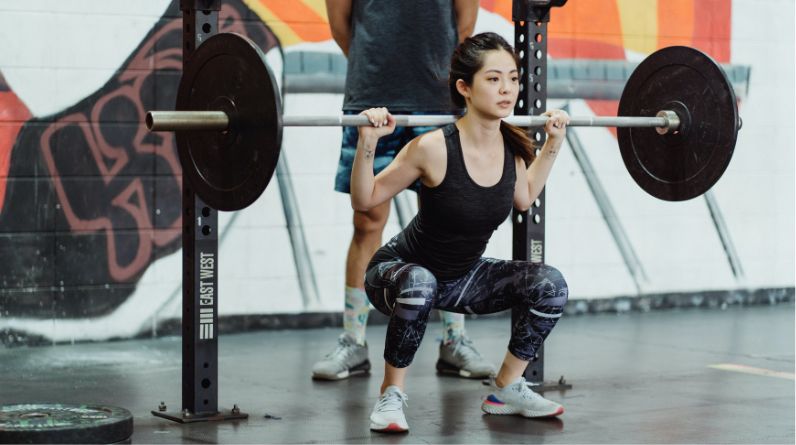
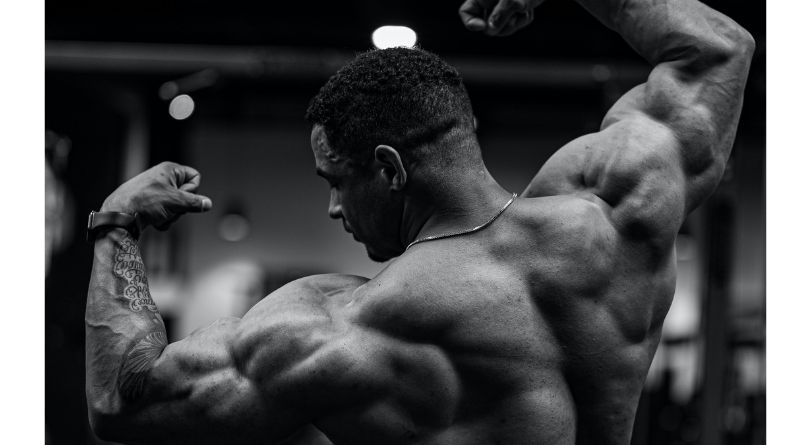
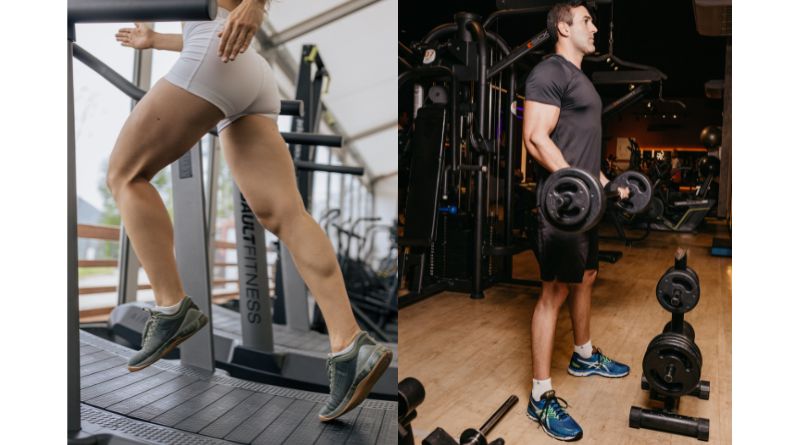

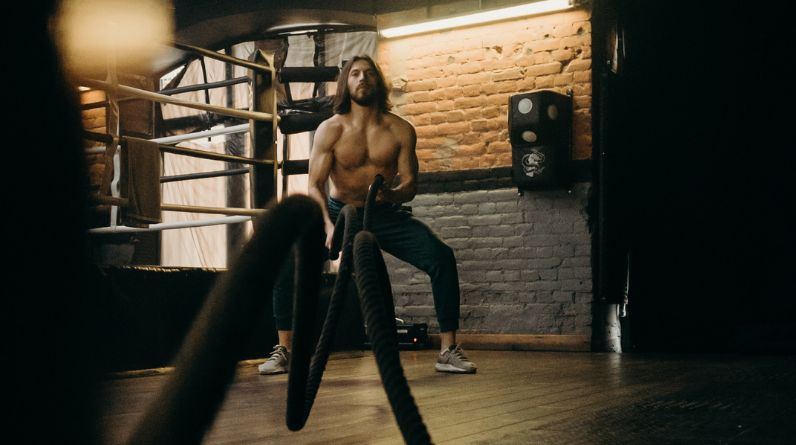
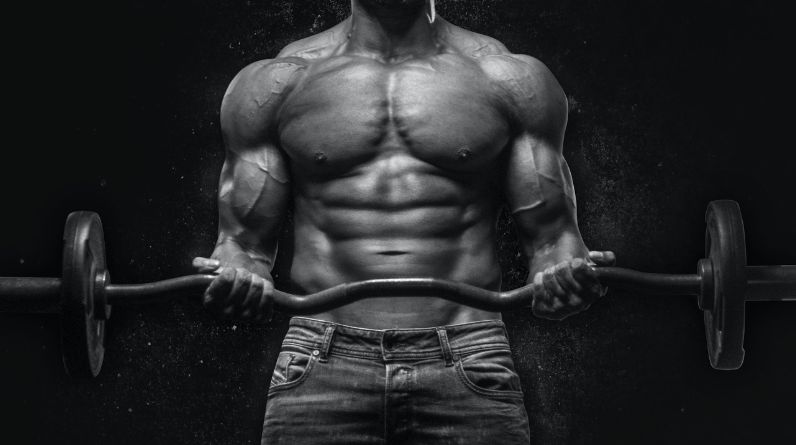
1 Comment
Comments are closed.